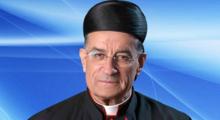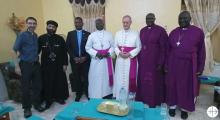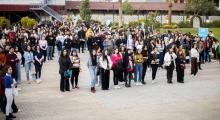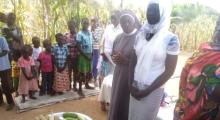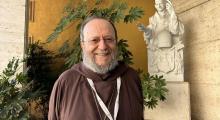Issued by the Catholic Center for Studies and Media - Jordan. Editor-in-chief Fr. Rif'at Bader - موقع أبونا abouna.org
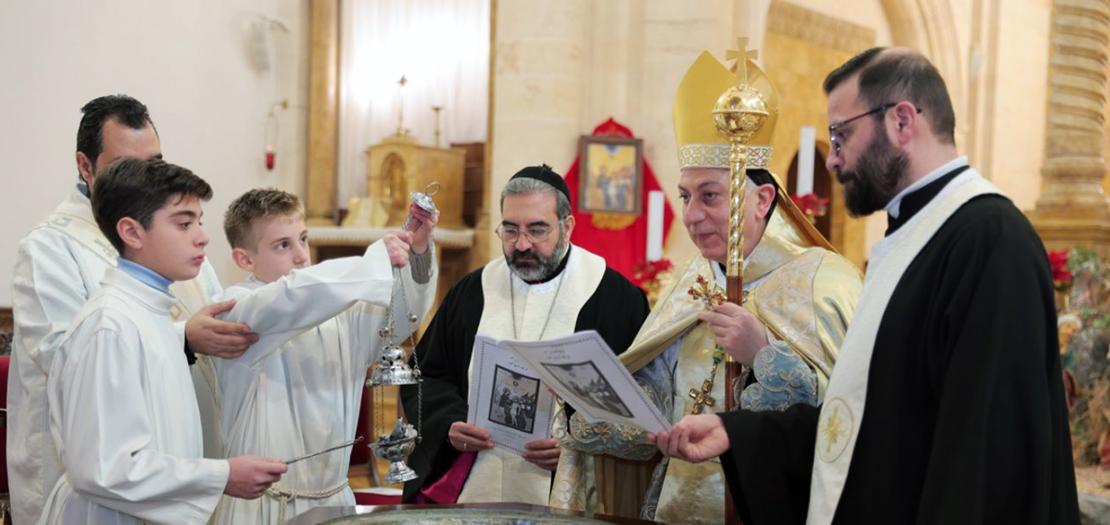
Nine days have passed since the massacre of at least 25 Christians who were killed while attending Mass at the Greek Orthodox Church of St. Elias, in Damascus. This massacre will forever be associated with the stigma of martyrdom of Syrian Christians in Syria after the fall of the Assad regime. "After the massacre," Joseph Tobji, the Maronite Archbishop of Aleppo, confirmed to Fides, "they wrote on the wall of a church in the Hama district the words 'your turn will come too." Someone wants to make it seem as if this is just the beginning. "People send me photos of leaflets posted on Christian homes saying 'Syria must be cleansed,' with drawings of bombs and Kalashnikov rifles. An intimidation reminiscent of the inscriptions on Christian homes in Mosul. These are the things circulating among Christians. Perhaps they are not even real photos, but someone generated them with artificial intelligence and posted them online. But the fear they unleash is not a "fake".
Archbishop Tobji describes a situation that is full of uncertainty for Syrian Christians. "Those in power now keep telling us that Christians must not be touched, that they are an essential part of the country and of Syrian society," he emphasizes. "At Christmas and Easter, they sent their security escorts to protect masses in churches and during processions. The security services have already put protective measures and systems in place. When we call them, they come. But people do not believe in them. Fear and despair prevail." It is clear that "not all factions and armed groups listen to those who now form the government."
Current President Ahmed Shara’, known under the name Abu Mohammad Al-Jolani, led the "Hayat Tahrir al-Sham" (HTS), which participated in the offensive that led to the overthrow of Bashar al-Assad's regime during the Syrian war. "In today's Syria," Archbishop Tobji admits, "not even a large portion of Syrian Muslims support the possible establishment of an Islamist regime. But the Islamist mentality is evident in the details. It affects daily life. With elevators reserved for men and those reserved for women, with government offices having counters for women and others for men, and so on." "A few days ago, a boy and a girl were walking down the street in the evening. A man stopped them and asked them why they were together. They replied that they were engaged, and he began to question them. He demanded that someone confirm this. He had them call the mother of one of them and began to question her as well, and she confirmed that the boy and girl were engaged... In such episodes, many people begin to say: This is no longer our country. So many young people are constantly looking for visas to go abroad to escape a situation they consider irreparable."
"The Catholic bishops," said Archbishop Joseph Tobji, "have reflected together on how they should behave during this time." "We share the idea that if the Lord is holding us here, in Syria in 2025, he wants something from us in this situation, that we should not hide or stand by: There is a call from the Lord that requires us to act," he emphasizes. For this reason, the Catholic bishops of Aleppo established a committee to promote dialogue with all parts of the country. A few weeks ago, the Committee organized a three-day conference to discuss Syria's present and future in the name of national reconciliation. "We also invited some of those who drafted the Constitutional Declaration. We spoke freely. There was also criticism of the current government, and others expressed their support. But that was only the beginning of a process. Now we are exploring how we can find ways to promote peace and reconciliation."
It is obvious that the current ruling group does not control all armed groups and territories. Large parts of the country are under the control of Kurds and Druze. "There is no police force on the streets, the situation is deadlocked, and the new rulers are still inexperienced in politics and administration," says the Maronite Archbishop of Aleppo. "Sometimes they make decisions that ignore reality. They have dismissed thousands and thousands of officials, labeling them corrupt en masse or declaring them superfluous. And now the families of these former employees of the apparatus do not know how to make ends meet. Bread still costs ten times more than it used to, and people cannot survive without it. Everyone still complains about the lack of electricity and water, and has done so for many years. The worst thing is the high prices of medicines, surgery and rents."
Archbishop Tobji has already met with President Shara’ four times. "When he speaks to us," he told Fides, "he shows that he has progressive visions. But I do not know if he will succeed in doing what he says he wants to do. I hope so."
Meanwhile, the sanctions imposed on Syria during Assad's time have been lifted, but in the country, according to Tobji, "we have not yet seen any positive effects. There's talk of businessmen coming to invest. If the economy were to improve, everything would change. But so far, there are no reassuring signs."
Syria presents the unique scenario of a power structure led by jihadist groups that enjoys support and political recognition in the countries of the North Atlantic West. "Syria," said Archbishop Tobiji, "has made a U-turn. Previously, the regime was supported by Russia and Iran; now the Shara’ government is supported by the US and Europe. But I believe that in these scenarios and with these shifting fronts, there are no eternal allies, no eternal friendships. They are ’interests’ that drive things."


